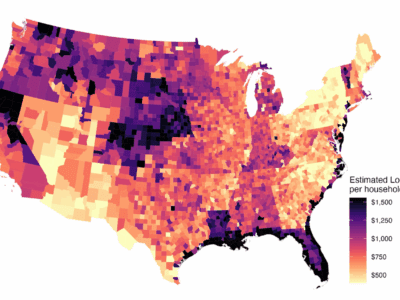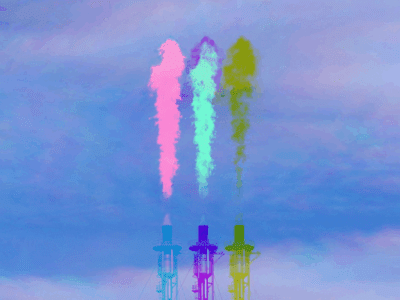What a Waste of Energy
 The Lawrence Livermore National Laboratory has issued its annual snapshot of our national energy use, based on data collected by the Department of Energy’s Energy Information Agency. The good news is that we used less energy in 2009 than we did in 2008 (almost all of the savings probably attributable to the still-weak economy). The bad news is that we were just as wasteful in 2009 as we were the year before.
The Lawrence Livermore National Laboratory has issued its annual snapshot of our national energy use, based on data collected by the Department of Energy’s Energy Information Agency. The good news is that we used less energy in 2009 than we did in 2008 (almost all of the savings probably attributable to the still-weak economy). The bad news is that we were just as wasteful in 2009 as we were the year before.
The Lab sorts all of the used energy into two bins – one for all of the energy that actually provided service (the darker bands gathering at the right end of the graph), and one for all of the energy that was wasted (the lighter grey bands higher up on the right). Wasted energy outscored used energy 54.6 quads to 40 quads. That means that 58% of all of the energy derived from coal, oil, natural gas, nuclear power and renewable energy last year went down the drain with the wastewater, or evaporated into the air with the NOx, SOx, and mercury emissions. This is just about the same ratio as the year before.
Coincidentally, the amount of wasted energy is about the same as the total energy derived from petroleum and coal in 2009. It makes you think about where we could be with significant improvements in energy efficiency.
This is not just about ceiling insulation and more heat-reflective roofs. It also has to do with the ability of electric generators to convert heat to power, the elimination of line losses from the transmission grid, and the improvement of fuel delivery systems to avoid leakage. It has to do with strategic use of “distributed” generation – those solar cells, wind turbines, and geothermal heating districts we construct right where the demand is. It has to do with figuring out which kind of uses are best supported with electricity and which ought to use natural gas or some other fuel right where it is needed.
But it is about end-use efficiency as well. With the ambitious utility and government-backed energy efficiency programs that are currently in place, we are chipping away at the problem. We need to stop chipping and start shoveling.







Reader Comments